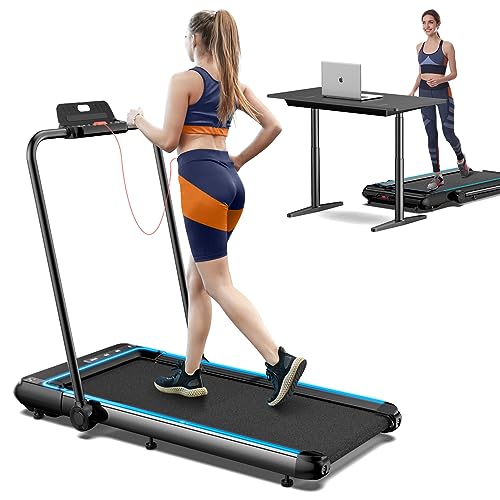The Top Walking Machine Gurus Are Doing Three Things
페이지 정보
작성자 Elke 작성일 25-08-10 19:55 조회 33 댓글 0본문
The Walking Machine: A Comprehensive Guide to Your Fitness Companion
In today's fast-paced world, where time is a high-end, maintaining a constant exercise regimen can be a challenge. For lots of, a walking machine-- typically known as a treadmill-- functions as a perfect physical fitness buddy. This post supplies a thorough look at walking machines, including their benefits, types, upkeep suggestions, and frequently asked concerns.

Why Choose a Walking Machine?
Walking machines use a useful and reliable way to include cardiovascular exercise into every day life. Here are several key advantages:
- Convenience: Walking machines permit individuals to work out anytime, regardless of weather condition conditions or time constraints. They are best for busy schedules.
- Versatility: Users can stroll, jog, or run at their own rate and strength.
- Security: Walking machines provide a lower danger of injury compared to outdoor walking or running, specifically for novices or those recuperating from injuries.
- Tracking Progress: Many treadmills featured built-in screens that track metrics like speed, range, and calories burned.
Types of Walking Machines
When considering a walking machine, it's necessary to choose the right type based upon specific fitness objectives and area constraints. Below are the main kinds of walking machines:
| Type | Description |
|---|---|
| Handbook Treadmills | These machines do not have a motor, and users require to stroll or go to rotate the belt. |
| Electric Treadmills | Powered by an electric motor, allowing users to set the speed and slope easily. |
| Folding Treadmills | Developed for simple storage, these treadmills can be folded when not in use. |
| Desk Treadmills | Perfect for a double work and workout environment, these compact machines enable walking while working. |
| Incline Trainers | These permit users to imitate uphill walking, boosting exercise intensity and calorie burn. |
Picking the Right Walking Machine
Choosing the best walking machine can significantly affect motivation and effectiveness. Here are some elements to consider:
Key Features to Look For
- Motor Power: A powerful motor ensures a smooth and constant workout. For periodic walkers, a 1.5 HP motor is generally adequate; for much heavier usage, search for 3.0 HP and above.
- Belt Size: A wider and longer belt offers more area for a comfortable stride. Requirement sizes range from 16 inches wide and 50 inches long.
- Incline Options: Adjustable slope settings can simulate walking or running uphill, increasing the intensity of the exercise.
- Shock Absorption: Good shock absorption decreases the threat of joint injuries and boosts convenience.
- Console Features: Look for built-in exercises, heart rate screens, and connection functions like Bluetooth for a more appealing experience.
Budget Considerations
Walking machines come in a broad range of prices, depending on features and building and construction quality. Here's a rough budget breakdown:
| Price Range | Features |
|---|---|
| Under ₤ 300 | Fundamental handbook or little electric treadmills with minimal features. |
| ₤ 300 - ₤ 700 | More advanced electric treadmills with slope, medium power motors, and better guarantees. |
| ₤ 700 - ₤ 1500 | Top quality electric treadmills with bigger built-in screens, extensive features, and guarantees. |
| ₤ 1500 and above | High-end designs using sophisticated technology, functions, and durable construction for major physical fitness enthusiasts. |
Upkeep Tips for Your Walking Machine
To make sure durability and optimal efficiency of a walking machine, think about the following upkeep ideas:
- Regular Cleaning: Dust and sweat can accumulate on the machine and the belt. Wipe down the surface areas and clean the belt regularly.
- Lubrication: Depending on the model, lubricating the running belt occasionally can avoid wear and tear. Examine the producer guidelines for suggested lubrication schedules.
- Inspection: Periodically check the machine for loose screws or worn parts. Tighten up and change as needed.
- Calibration: Occasionally, examine the calibration of your machine's metrics to guarantee they supply accurate data.
- Appropriate Use: Follow the manufacturer's suggestions for weight limitations and functional standards.
FAQs About Walking Machines
1. Are walking machines an excellent workout?
Yes, walking machines provide an outstanding cardiovascular exercise, can assist with weight loss, and enhance general health.
2. How typically should I use a walking machine?
Aim for at least 150 minutes of moderate-intensity aerobic activity per week, which can easily be achieved with routine sessions on a walking machine.
3. Can I reduce weight on a walking machine?
Yes, incorporating a walking machine regimen into a healthy diet plan can promote weight reduction, specifically if combined with periods and incline training.
4. Is it safe for senior citizens to utilize a walking machine?
Yes, walking machines can be safe for elders with low-impact settings and safety features like hand rails. However, individuals need to seek advice from their doctor before starting any workout program.
5. What's the distinction between a treadmill and a walking machine?
The term "walking machine" typically describes a treadmill planned for walking, while "treadmill" can describe machines utilized for various intensities, consisting of running.
With their adaptability and convenience, walking machines can significantly enhance one's physical fitness journey. By carefully picking the ideal type, guaranteeing correct upkeep, and integrating different workout methods, users can optimize their walking machine's advantages. Just like any exercise regimen, consistency is key to attaining enduring physical fitness results.
- 이전글 8 Tips To Up Your Composite Door Handle Fix Game
- 다음글 Do Not Make This Blunder With Your Genuine Driving License Online
댓글목록 0
등록된 댓글이 없습니다.

